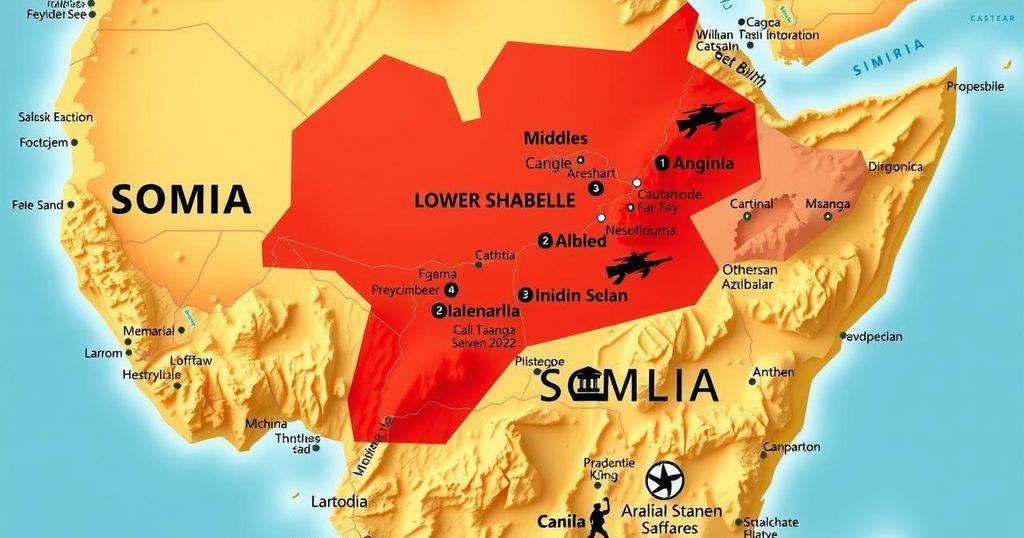Resurgence of Al-Shabaab in Somalia Raises Security Concerns
Al-Shabaab jihadist militia shows signs of resurgence in Somalia following territorial gains and an assassination attempt on President Mohamud. The Somali government faces declining international support and increased fears among residents about security in Mogadishu. Analysts offer differing perspectives on the state’s ability to counteract these threats amid political distractions.
Somalia’s Al-Shabaab jihadist militia is reportedly experiencing a resurgence after making strategic gains and narrowly attempting to assassinate President Hassan Sheikh Mohamud. In recent years, the group had been on the defensive; however, analysts now caution that momentum has shifted. Support from international partners, including the United States and the African Union, appears to be waning, exacerbating the precarious situation.
Al-Shabaab has seized control of key territories within the Middle and Lower Shabelle regions, including towns that bolster their presence near the capital, Mogadishu. A bomb blast on March 18, which nearly affected the president’s convoy, underscored the group’s threats within the city. Somali officials reported the group’s takeover of Masaajid Cali Gaduud, further confirming these developments.
Analyst Matt Bryden noted concerning trends, indicating a scenario where government forces are losing control over vital choke points and bridges. The retreat of Somali forces and local militias has led to increased fears among the populace regarding the government’s ability to maintain security in Mogadishu.
Despite these challenges, President Mohamud vowed to continue the fight against Al-Shabaab, stating that his administration will not relent until they achieve victory. Simultaneously, concerns about reduced international support loom large, particularly with cuts to security assistance from the United States and potential decreases from European contributions, as noted by Bryden.
While some analysts believe Al-Shabaab’s advances leverage governmental distractions from internal politics, they also highlight the resilience of the capital against immediate threats. Omar Mahmood of the International Crisis Group emphasized that although there may be a resurgence of Al-Shabaab activity, the overall narrative should reflect a more nuanced, stalemate-like condition rather than an imminent takeover of Mogadishu.
In summary, Al-Shabaab’s resurgence poses a significant threat to Somalia, particularly in light of the recent territorial gains and attempted attacks on political leaders. The government faces crucial challenges, including potential reductions in international support and internal political distractions. While analysts express diverging views on the immediacy of the threat to Mogadishu, the risks associated with the jihadist group remain a focal concern for the stability of the region.
Original Source: www.france24.com




Post Comment